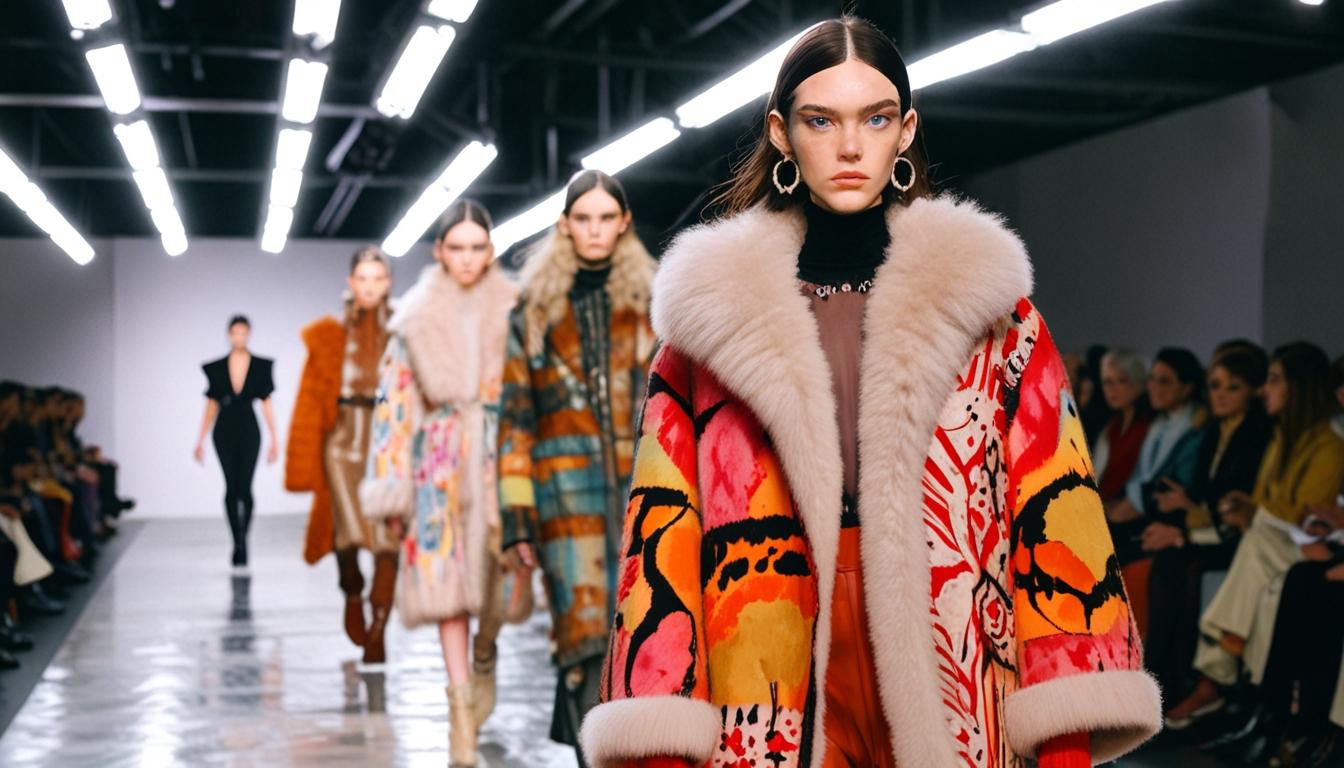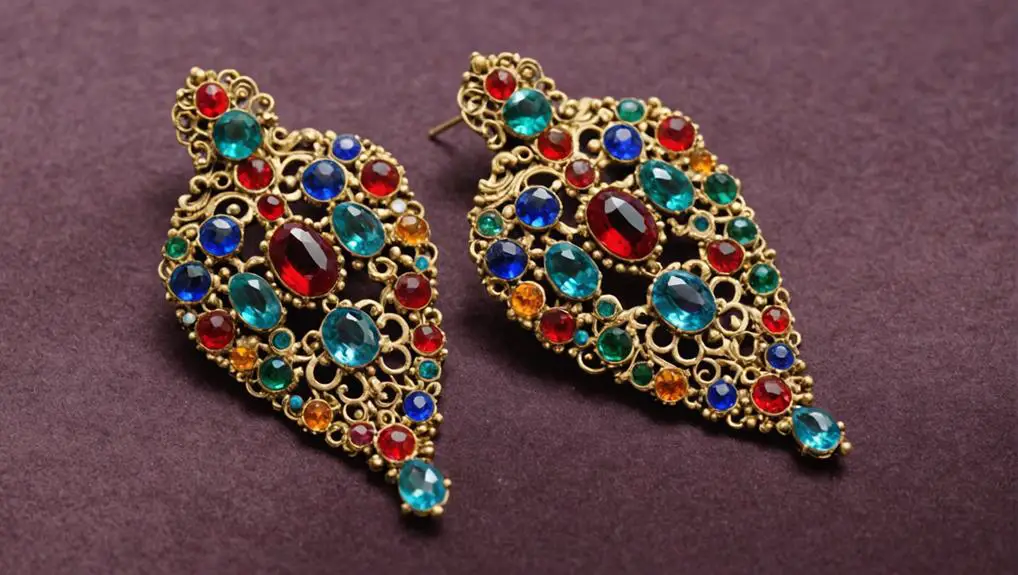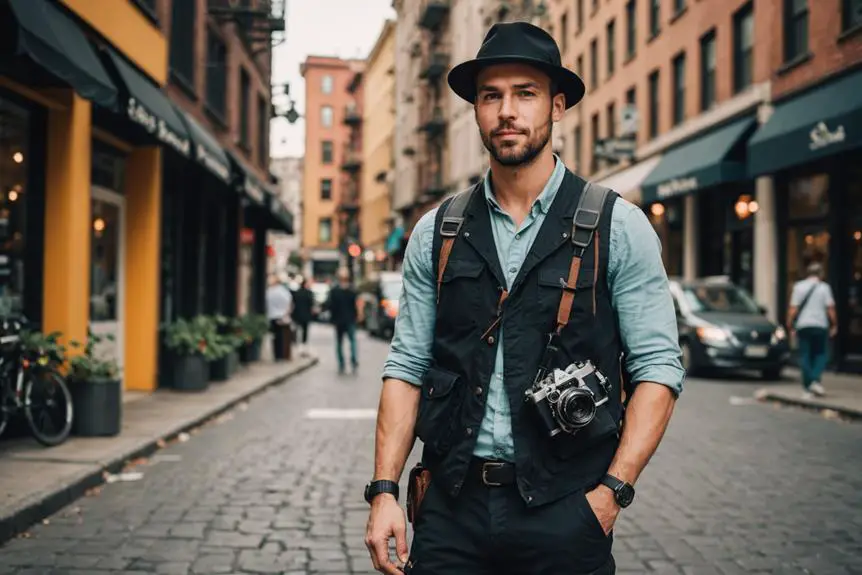In April 2025, various developments in sustainable fashion highlight changing consumer preferences, the ethical implications of material use, and innovative recycling efforts in the industry.
In April 2025, the sustainable fashion landscape witnessed a variety of developments that underscore shifting consumer preferences and industry practices, as highlighted in a recent report from Good On You.
One of the most notable trends reported by The Guardian during Paris Fashion Week is the resurgence of real animal fur and skins on the runway, attributed to the rising trend of maximalism. This trend has reignited discussions regarding the ethical implications of using vintage fur, skins from invasive species, and alternative materials that replicate animal-derived products.
In a related context, the fast fashion giant Inditex, which owns brands such as Zara, Bershka, and Massimo Dutti, reported a 10% increase in transport emissions in 2024. This uptick was driven by an increase in air freight usage, as companies faced delays with sea-based shipping, necessitating more flights between their Asian manufacturing centers and logistical hubs in Spain. Reuters noted that this shift reflects a growing pace of fast fashion.
Emerging trends in fashion are also taking cues from the clean beauty movement. The Business of Fashion highlights a rising interest in clothing made from skin-friendly materials, as consumers become more health-conscious. This trend emphasizes natural fibers devoid of harsh chemical treatments.
Animal welfare advocates received a significant boost as the organization Four Paws celebrated the addition of the 100th member to its campaign aiming to end mulesing—or live lamb cutting—in the Australian wool industry. Notable brands such as Zara, Patagonia, and Hugo Boss have committed to excluding wool sourced through this controversial technique from their supply chains.
In a collaborative effort to address textile waste, Fashion Revolution Brazil, in conjunction with Desierto Vestido and commerce platform Vtex, are reimagining the clothes discarded in the Atacama Desert’s notorious dump. The initiative involves salvaging and cleaning these garments before offering them “for sale” online for the cost of shipping alone, emphasizing the pressing issue of clothing waste.
Meanwhile, in Manchester, UK, the BBC reported on a recycling center that has experienced a surge in discarded clothing. Peter Page, the head of recycling and sustainability at the center, stated, “It’s very difficult because clothing is not designed to be recycled. It’s designed to be bought, to be worn and then to be thrown away,” highlighting a fundamental challenge in the recycling of textiles.
Turning to positive strides in the industry, Swedish label Dedicated has initiated a pilot repair service in collaboration with local tailors in Stockholm. Customers participating in the service will receive vouchers for the online store and can provide feedback to shape the future of this program.
In innovation, hemp specialist Opera Campi has developed a new denim fabric from low-impact hemp, utilized in the production of jeans at their Italian workshop. Similarly, the brand Tentree has rolled out a collection in partnership with illustrator Brooklyn Bell, with proceeds supporting tree-planting efforts in the Pacific Northwest of the United States. Bell remarked on the conservation efforts in the region, stating, “The conservation happening in the Pacific Northwest is important to me. I personally live in a rainforest with old-growth trees in my backyard.”
On the sustainability front, “Great” rated brand No Nasties has integrated knitting technology into their organic cotton garments from the ‘Azulejo’ collection, minimizing textile waste during manufacturing. Meanwhile, “Good” rated Outerknown has launched a new material called NetPlus, crafted from post-consumer recycled fishing nets, adding to their commitment to responsible materials in their product line. Additionally, “Good” label O My Bag has improved its score as a B Corp, now reaching 129.4 points out of 200, thanks to enhanced living wage initiatives and lower impact materials in its new collection, La Villa.
The developments in sustainable fashion underscore a nuanced landscape where industry practices are continuously evolving in response to both consumer demands and pressing ethical considerations.
Source: Noah Wire Services




